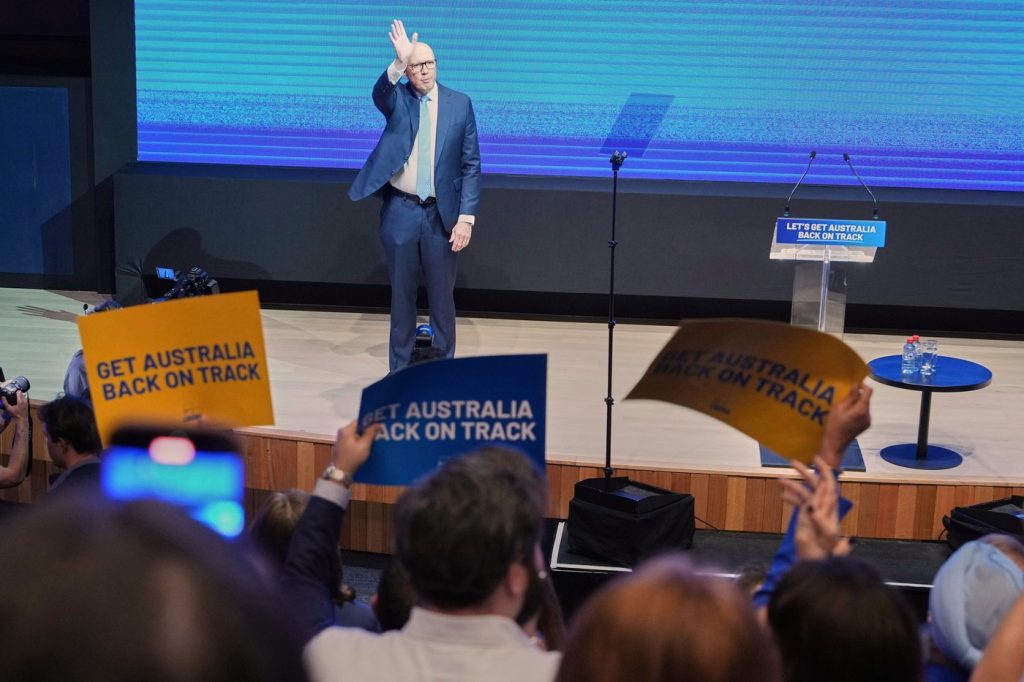MELBOURNE, Australia (AP) — As Australia approaches its first federal election where younger voters will outnumber the historically dominant baby boomer generation, political leaders are presenting competing strategies aimed at easing the burden of homeownership for Australians. Prime Minister Anthony Albanese and opposition leader Peter Dutton officially kicked off their campaigns ahead of the May 3 elections.
Housing affordability is a pivotal concern for both parties as Australians face high real estate prices and constrained supply. Issues such as inflation, the failure of builders, material shortages, and a growing population exacerbate the struggle for many to secure their first home. Albanese addressed supporters in Perth, highlighting, “Buying a first home has never been easy, but for this generation, it’s never felt further out of reach.” He reiterated his belief that homeownership should not be a privilege but an achievable aspiration for all Australians.
The governing Labor Party has pledged a significant investment of 10 billion Australian dollars (approximately $6.3 billion) aimed at constructing 100,000 new homes over an eight-year period exclusively for first-homebuyers. This initiative would allow these buyers to enter the market with a reduced deposit of just 5%, significantly less than the current standard of 20%, with the government covering the remaining amount.
In contrast, Dutton’s Liberal Party proposed to limit housing demand by banning foreign investors and temporary residents from purchasing existing homes for two years, while also pledging to reduce immigration and the influx of foreign students. Additionally, the opposition leader announced that first-time homebuyers could claim a tax deduction on mortgage interest payments for newly constructed homes. “Today, I bring a message of hope to all Australians seeking to own a home of their own,” Dutton stated in Sydney, vowing to be a prime minister who revives the dream of homeownership.
This shift in political focus reflects the changing demographics of the Australian electorate. For the first time, younger generations including Generation X, Millennials, and Generation Z comprise more than 50% of voters, signaling a significant generational change from the long-dominant baby boomers. Compulsory voting in Australia ensures high turnout among all age groups, making the representation of younger voters even more crucial.
A recent report from Monash University in Melbourne revealed that issues such as housing, employment, climate change, and healthcare primarily concern Millennial voters and younger populations, underscoring their priorities heading into the election.
In a broader political context, the Albanese government criticized the opposition for purportedly planning to slash public sector jobs and services, suggesting Dutton’s team is emulating strategies similar to those employed by the Trump administration in the United States. Opposition senator Jacinta Nampijnpa Price, however, distanced herself from such comparisons while asserting that her administration aims to “make Australia great again.”
Albanese took the opportunity to ridicule these claims, questioning why Australia would want to adopt systems from abroad. He remarked, “We don’t want a wages system where people have to rely on tips to make ends meet,” while also highlighting the aversion to an American-style healthcare system. Albanese stressed that Australia should carve its own path rather than mimic international practices.










